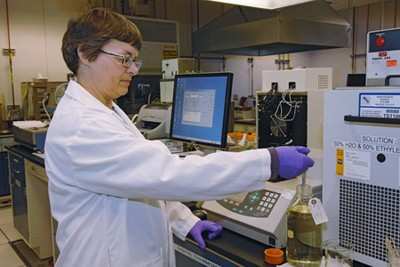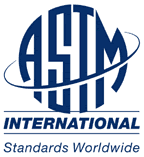Boeing, Embraer, IDB Examine Long-Term Production Of Fuel From
Sugarcane
 A group consisting of Boeing, Embraer, and
the Inter-American Development Bank (IDB) will jointly fund a
sustainability analysis of producing renewable jet fuel sourced
from Brazilian sugarcane. The study will evaluate environmental and
market conditions associated with the use of renewable jet fuel
produced by Amyris. The World Wildlife Fund (WWF) will serve as an
independent reviewer and advisor.
A group consisting of Boeing, Embraer, and
the Inter-American Development Bank (IDB) will jointly fund a
sustainability analysis of producing renewable jet fuel sourced
from Brazilian sugarcane. The study will evaluate environmental and
market conditions associated with the use of renewable jet fuel
produced by Amyris. The World Wildlife Fund (WWF) will serve as an
independent reviewer and advisor.
“Emerging renewable jet fuel technologies have the
potential to reduce greenhouse gas emissions significantly, as
sugarcane ethanol in Brazil has already proven,” said Arnaldo
Vieira de Carvalho, leader of the IDB Sustainable Aviation Biofuels
Initiative. “This study will examine the overall potential
for sustainable, large-scale production of alternative jet fuels
made from sugarcane.”
Last month, the IDB announced a regional cooperation grant to
help public and private institutions develop a sustainable biojet
fuels industry. The Amyris study is the first to be financed under
that grant.
Boeing Biofuel Engineer

The study, announced last week, will be led by ICONE, a research
think-tank in Brazil with extensive experience in agriculture and
biofuels analysis, and independently reviewed by WWF. Scheduled for
completion in early 2012, the study will include a complete
lifecycle analysis of the emissions associated with Amyris’s
renewable jet fuel, including indirect land use change and effects.
In addition, the study will include benchmarking of cane-derived
renewable jet fuel against major sustainability standards,
including the Bonsucro, the Roundtable on Sustainable Biofuels and
the IDB Biofuel Scorecard.
"Collaborative research into the cane-to-jet pathway is
important for diversifying aviation’s fuel supplies, and also
builds on the strong renewable energy cooperation established
between the Unites States and Brazil,” said Boeing Vice
President of Environment and Aviation Policy Billy Glover.
“With aviation biofuel now approved for use in commercial
jetliners, understanding and ensuring the sustainability of sources
that can feed into region supply chains is critical and Brazil has
a strong role to play there. This project also expands upon
existing collaboration between Amyris, the State Government of
Queensland, and Boeing.”
 “Last month, ASTM International created a
task force to establish product specifications for direct
sugar-to-hydrocarbon renewable jet fuels, such as that being
developed by Amyris. We are committed not only to delivering on the
technical specifications for our jet fuel but also to ensuring that
our renewable products are produced sustainably,” said John
Melo, CEO of Amyris. “Our planet derives no benefit from a
fuel that merely replaces current fossil fuels. This study will
help us replace fossil fuels with a renewable jet fuel that
surpasses both technical and sustainability criteria.”
“Last month, ASTM International created a
task force to establish product specifications for direct
sugar-to-hydrocarbon renewable jet fuels, such as that being
developed by Amyris. We are committed not only to delivering on the
technical specifications for our jet fuel but also to ensuring that
our renewable products are produced sustainably,” said John
Melo, CEO of Amyris. “Our planet derives no benefit from a
fuel that merely replaces current fossil fuels. This study will
help us replace fossil fuels with a renewable jet fuel that
surpasses both technical and sustainability criteria.”
“Participation in this important study is one more step for
Embraer to support the development of sustainable biofuels for
aviation,” said Guilherme de Almeida Freire, Embraer
Director, Environmental Strategy and Technology. “Brazil is a
rich source of biomass, and the maturation of this technology,
based on sugarcane, reinforces the importance that the Nation gives
to the sustainable growth of aviation.”
“Climate change is threatening biodiversity and the critical
habitats of some the world’s most iconic species,” said
Kevin Ogorzalek, Program Officer at World Wildlife Fund. “As
renewable jet fuel production increases, it must be done in a
transparent and sustainable way. We’re eager to contribute to
this study as one part of a growing international effort to reduce
the fast-growing emissions from aviation and protect the critical
resources on which we all depend.”
 ANN's Daily Aero-Term (04.30.24): Runway Centerline Lighting
ANN's Daily Aero-Term (04.30.24): Runway Centerline Lighting ANN's Daily Aero-Linx (04.30.24)
ANN's Daily Aero-Linx (04.30.24) Airborne 04.24.24: INTEGRAL E, Elixir USA, M700 RVSM
Airborne 04.24.24: INTEGRAL E, Elixir USA, M700 RVSM Airborne 04.29.24: EAA B-25 Rides, Textron 2024, G700 Deliveries
Airborne 04.29.24: EAA B-25 Rides, Textron 2024, G700 Deliveries Airborne-NextGen 04.23.24: UAVOS UVH 170, magni650 Engine, World eVTOL Directory
Airborne-NextGen 04.23.24: UAVOS UVH 170, magni650 Engine, World eVTOL Directory





